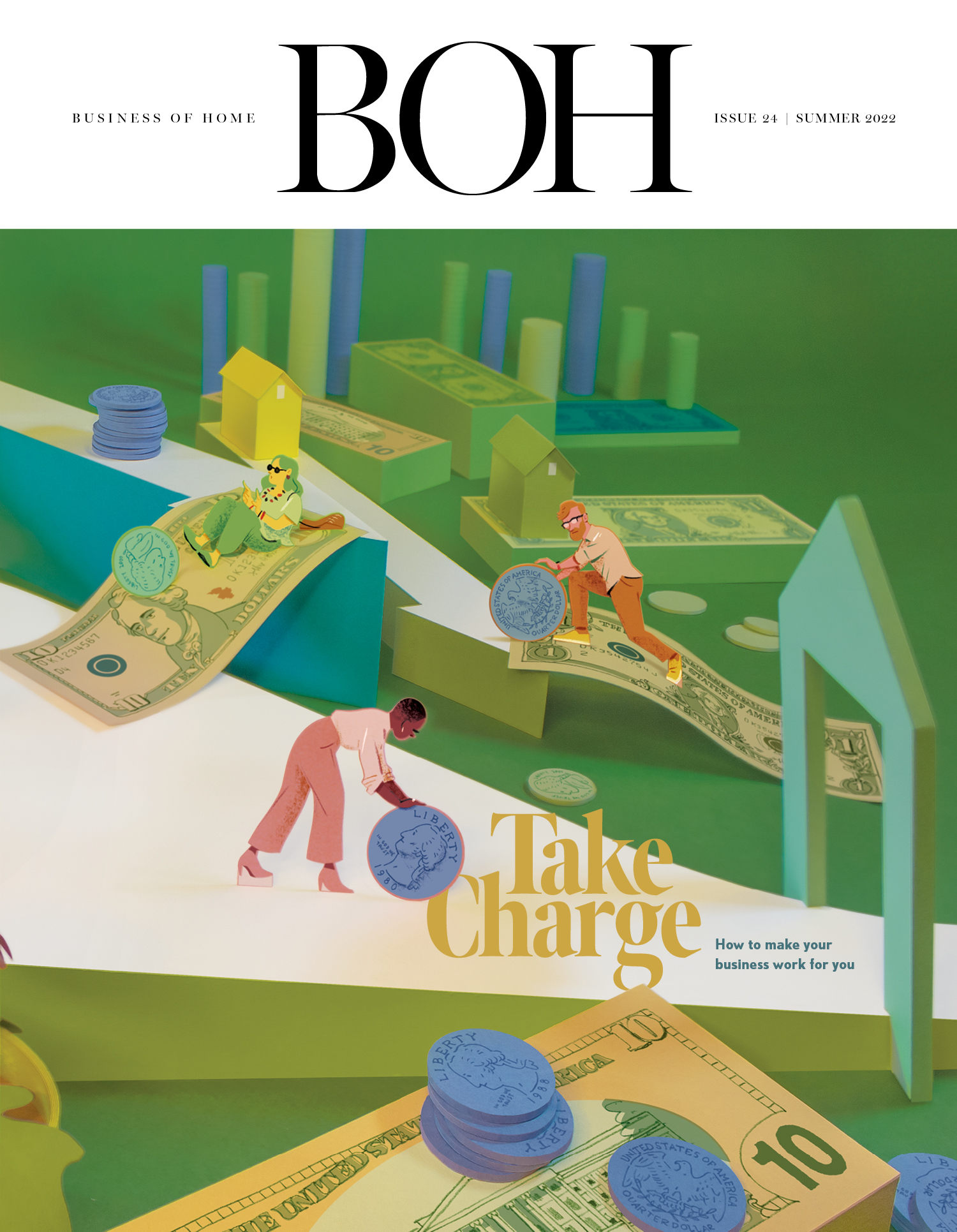After a quick two-week vacation between jobs—the longest of her career—Debbie Propst got right to work the first week of January as Herman Miller’s new president of retail. One of her first steps was to create a roadmap for the company for the next year. Needless to say, the map didn’t account for a global pandemic. All of a sudden, the need for a more robust digital strategy wasn’t a 12-month problem, but a 12-day problem: “As a result of this crisis, I’m doing things a lot quicker than I thought I would!”
On this episode of the Business of Home podcast, Propst speaks to host Dennis Scully about the past, present and future of retail, as seen through the lens of three companies where she’s worked: Abercrombie & Fitch, One Kings Lane and now Herman Miller.
At Abercrombie, where Propst worked from 2005 to 2012, it was the dawn of retail as theater: velvet ropes in front of stores, shirtlessness, and a sense of drama and flair that eventually died out as fast fashion took over. Over her seven-plus years at One Kings Lane, she oversaw the company’s strategy as it pivoted away from a post-recession flash sale market to a retailer of markdown home goods, and was eventually named president.
There, Propst saw firsthand the importance of a robust digital presence, and intends to bring a similar approach to Herman Miller’s retail brand, Design Within Reach—now more than ever. “We’re going to see a rapid digitization across retail right now. Anyone that wasn’t thinking about their consumer engagement strategy as omnichannel is very much thinking about that now,” she says.
As a response to COVID-19’s shutdown of DWR stores across the country, she’s fast-tracked a video-chat option that the company was piloting on its website, enabled customers to buy via installment loan lending platform Affirm, and implemented a more human tone to the brand’s digital marketing strategy—a way, Propst says, that small-to-midsize brands can differentiate themselves from Amazon.
One of the interesting things about the coronavirus upending business as usual is that it has created opportunities as well as challenges. “[Home] is a category that has very much competed with the experience economy—when people make the decision to invest in a sofa, quite often they’re trading away from a vacation, especially with the millennial demographic,” she says. “And [as] the experience economy in the last six to eight weeks has fallen by the wayside, that competitive threat has allowed for a different investment consideration in homes. Our homes are less about investing for the sake of having Instagrammable spaces and more about the luxuries that are going to make home more comfortable or highly functioning during this time.”
And as for the future of retail? Propst says what’s happening now will have a lasting impact: “It takes 30 days to make or break a habit. So we’re making new habits now, and a lot of those habits will stay with us.”
This episode was sponsored by DEDON and Industry West. Below, listen to the episode. If you like what you heard, subscribe to the podcast (free of charge!) to get a new episode every week.
Homepage photo courtesy of Herman Miller





























